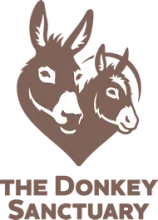Our Vision: A world where donkeys and mules live free from suffering, and their contribution to humanity is fully valued.
Our Mission: To transform the quality of life for donkeys, mules, and people worldwide through greater understanding, collaboration and support, and by promoting lasting, mutually life-enhancing relationships.
Primary activities: The Donkey Sanctuary is a global organisation that works in almost 40 countries, collaborating with intergovernmental organisations, international institutions, governments, and like-minded parties to advance welfare standards for working donkeys and mules through legislation, policy, and good practices. We have reached more than 1.6 million donkeys and mules in the last year through programmes in Africa, Asia, Europe, the Americas, and Australasia.
Priorities as a partner of the Global Partnership for Sustainable Development Data
Many of the world’s most urgent Sustainable Development Goals (SDGs) can be achieved by cost effective and simple solutions that benefit some of the poorest and most vulnerable people in society. The most striking example is the welfare of working equids (horses, ponies, donkeys, and mules). To improve the lives of people, it is essential to improve the lives of working equids; they boost the income and resilience of many of the most vulnerable communities. Yet the impact of these working equids is often compromised by poor health, poor nutrition, and overwork.
The Donkey Sanctuary is collaborating with our global partners to help develop understanding and best practice for all areas of data collection when assessing the welfare of working equids. This covers the entire data lifecycle from developing open-source toolkits used during data collection, through to online data dissemination. The Donkey Sanctuary is committed to data management best practice and understands the importance of robust, reliable data collection for the measurement and assessment of equine welfare. We understand that the quality of data directly affects our ability to measure the welfare of working equids, and therefore how this delivers for development.
